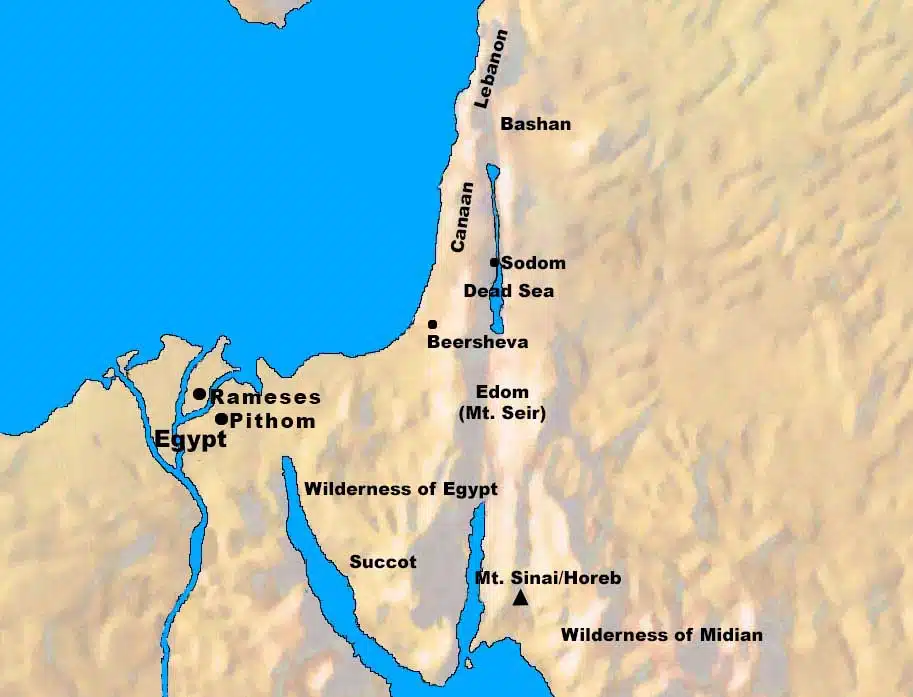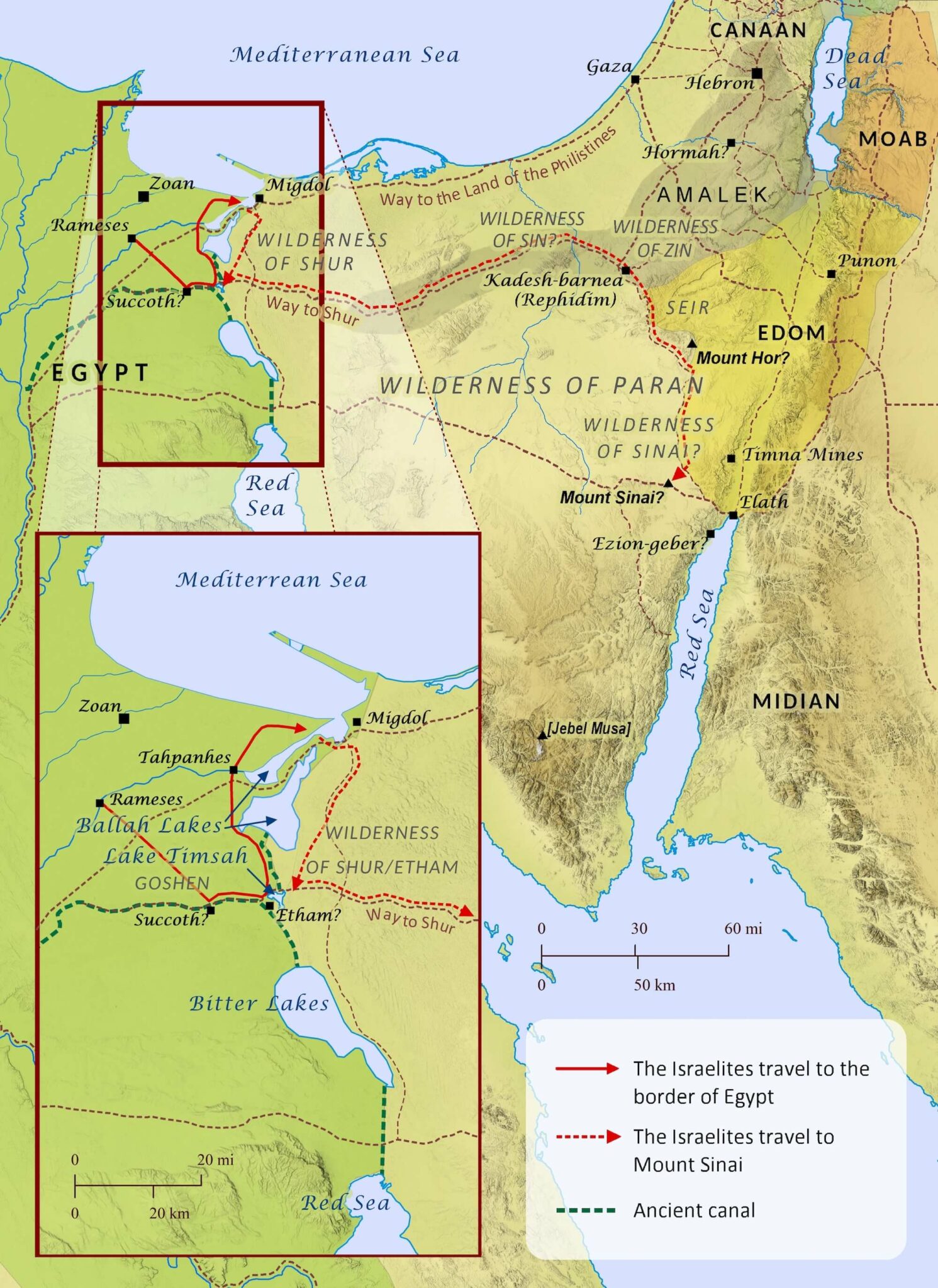The prologue to the giving of the ten “words” identifies the Sovereign and His qualifications for establishing the rules in the covenant. It serves as the basis for what follows.
The account begins when God spoke all these words, saying. The word “God” is the Hebrew word “elohim,” used in Genesis to refer to God as the Creator of all things. It is used here to refer to the sovereign at the beginning of the passage. It connects the Ten Commandments to the creation in Genesis 1 because it was “God” (“elohim”) who created them. The fact that it is God who is speaking these commandments means that they were not the invention of Moses or any other human. God created His Law just as He created all other things, including principalities and powers (Colossians 1:16).
Following the pattern of the suzerain-vassal treaty, a common treaty format in that time, Exodus 20:1-2 contains both the preamble and the prologue. The preamble not only identifies the Suzerain God who initiates the covenant, but it also identifies the vassals as “you.” Thus, the Suzerain is the LORD and the vassals are Israel (I am the LORD your God).
The prologue recounts the past relationship between the Suzerain God and His vassals (Israel). God is the One Who brought them out of the land of Egypt, out of the house of slavery.
Notice that the Scriptures do not call these words (the commandments which Moses is about to explain)the “Ten Commandments.” Consistently, they are called the “Ten Words” (Exodus 34:28; Deuteronomy 4:13). The Septuagint (LXX, the Greek translation of the Old Testament) uses the same terms “ten words” (deka logoi). In English, they are referred to as the “Decalogue.” However the title of “Ten Commandments” is appropriately descriptive since they are given in the form of commands (imperatives).
The Sovereign (Suzerain) also declared that I am the Lord your God. The word “LORD” is the Hebrew word “Yahweh” (also known as “Jehovah”) and stresses His existence, His presence, and His covenant relationship with humans. This LORD was also the One who brought you out of the land of Egypt, out of the house of slavery. Thus, the LORD was the Deliverer of the Israelites who defeated the powerful Egyptians and freed the Israelites from slavery.
The LORD here described Himself as the Israelites’ Deliverer. The fact that He was their creator as well as their Deliverer gave Him the authority to set down rules that would govern their relationship to Him and to their fellow Israelites.
The statement I am the LORD your God emphasizes the Lord as Israel’s Suzerain, since the name LORD (Yahweh) emphasizes His covenant relationship. Yahweh is the one who enters into a relationship with His people and thus He is their Ruler or Suzerain. Yahweh is Israel’s God because they have agreed upon the terms of His covenant (Exodus 19:8). However, He is also God, who created all things. It is therefore a given that God has the power to deliver as well as to enforce the covenant.
Biblical Text
1 Then God spoke all these words, saying,
2 “I am the Lord your God, who brought you out of the land of Egypt, out of the house of slavery.
Check out our other commentaries:
-
Genesis 18:23-26 meaning
Abraham bargains with God to spare them from judgement. if He will destroy the righteous with the wicked sinners. ...... -
Jonah 4:5-8 meaning
While Jonah sits under his shelter outside of Nineveh, God appoints a plant to provide extra shade for him, making him very happy. But when...... -
Matthew 21:23-27 meaning
The chief priests confront Jesus in the temple and interrogate Him about His authority. They publicly ask Him a framing question hoping to entrap Him....... -
Daniel 2:24-30 meaning
Before interpreting the dream, Daniel tells the king that it is only because of the one true God that he is able to explain it...... -
Exodus 21:18-27 meaning
Here are the judgements for violence between free people, violence done to servants, violence done to a pregnant woman which causes the loss of her......




